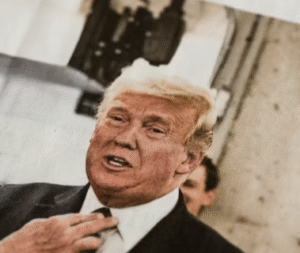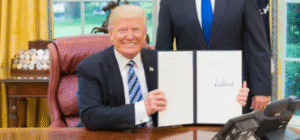$DFEN $EWY $LMT
#trade #defense #SouthKorea #USMilitary #geopolitics #ChinaUSrelations #militaryinvestment #internationalrelations #securityalliance #economicimpact
In a recent development that has captured the attention of international economic and defense circles, the United States, under the direction of former President Donald Trump, has expressed a desire for a comprehensive ‘one-stop shopping’ deal with South Korea. This proposal encompasses both trade and defense agreements, suggesting a significant shift in the dynamics of the long-standing partnership between these two countries. At the heart of this proposition is the expectation that South Korea will increase its investment in its military forces. This strategic move, as analyzed by defense experts, is not merely about bolstering South Korea’s defense capabilities but is aimed at realigning the focus of U.S. military presence in the region towards a more pronounced deterrence against China.
The logic behind this approach is both strategic and practical. By encouraging South Korea to augment its defense investment, the United States seeks to lighten its financial and operational load in the peninsula, thereby reallocating resources and attention towards countering China’s military ascendancy in the Pacific. Such a recalibration of U.S. military focus is deemed necessary in an era where China’s rising influence poses significant challenges to the established geopolitical and security order in the region. This pivot to focus on China is indicative of a broader strategic realignment by the U.S., which seeks to strengthen its alliances and military posture in Asia.
However, this proposed deal is not without its costs and complexities. For South Korea, ramping up defense spending entails significant financial commitments and potential shifts in its own regional policies and relationships. The implications of a deeper military investment are manifold, reaching into domains of economic policy, domestic politics, and South Korea’s relations with neighboring countries, including North Korea and China. Moreover, this increased defense spending by South Korea raises questions about the nature and extent of its dependency on the United States for security assurances, and how this recalibrated partnership might affect its autonomy and strategic flexibility in the rapidly evolving Asian security landscape.
In essence, the proposed ‘one-stop shopping’ deal by the Trump administration underscores a pivotal moment in U.S.-South Korea relations, reflecting broader shifts in global power dynamics and the strategic recalibrations necessitated by them. As South Korea contemplates its response and potential adjustments to its defense and foreign policies, the international community watches closely. The outcome of these deliberations is likely to have a far-reaching impact, not only on the immediate security concerns in the Korean Peninsula but also on the architecture of international trade and defense alliances in the face of a rising China. This evolving scenario presents a complex tapestry of strategic, economic, and political considerations that both the United States and South Korea must navigate with care and foresight.











Comments are closed.